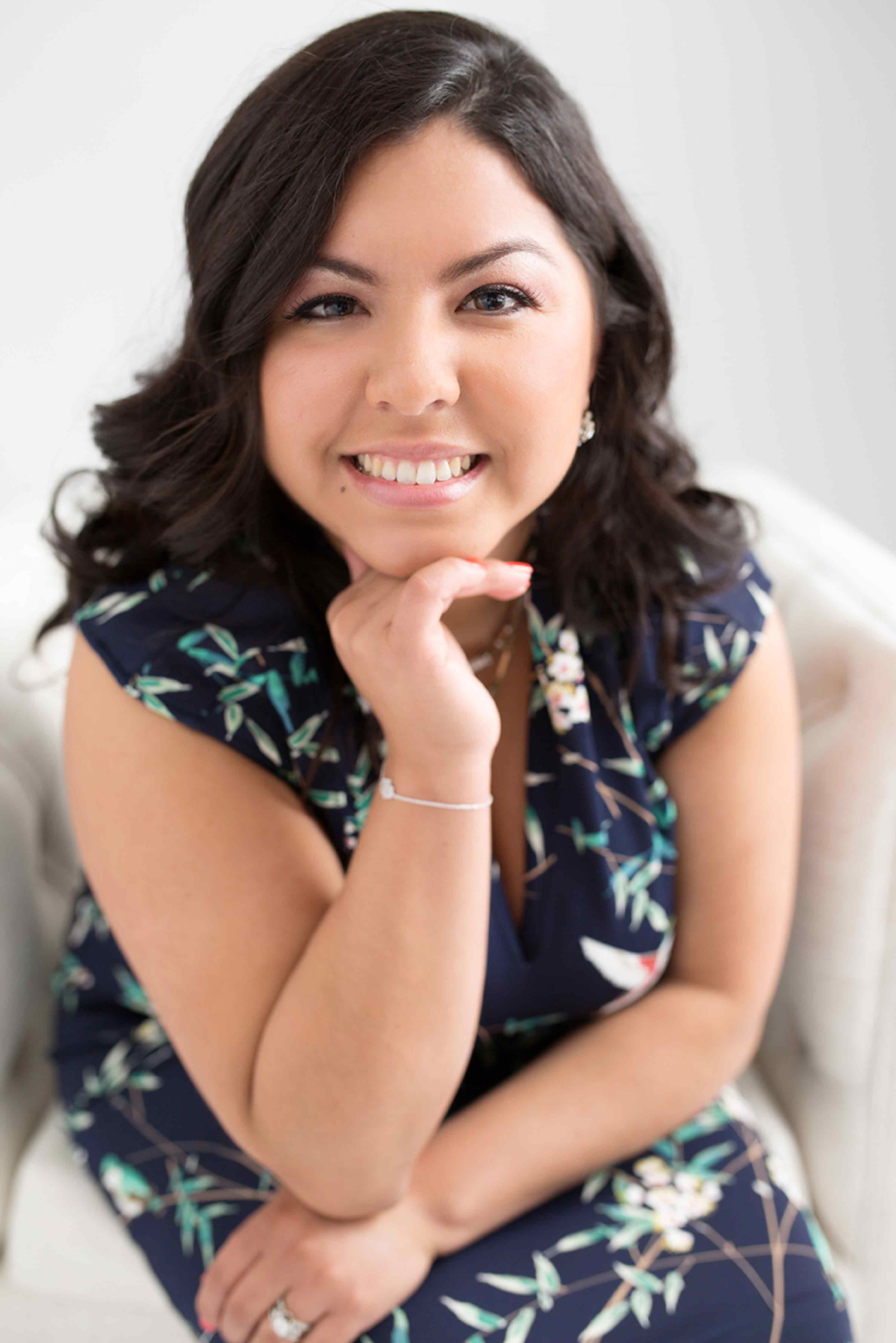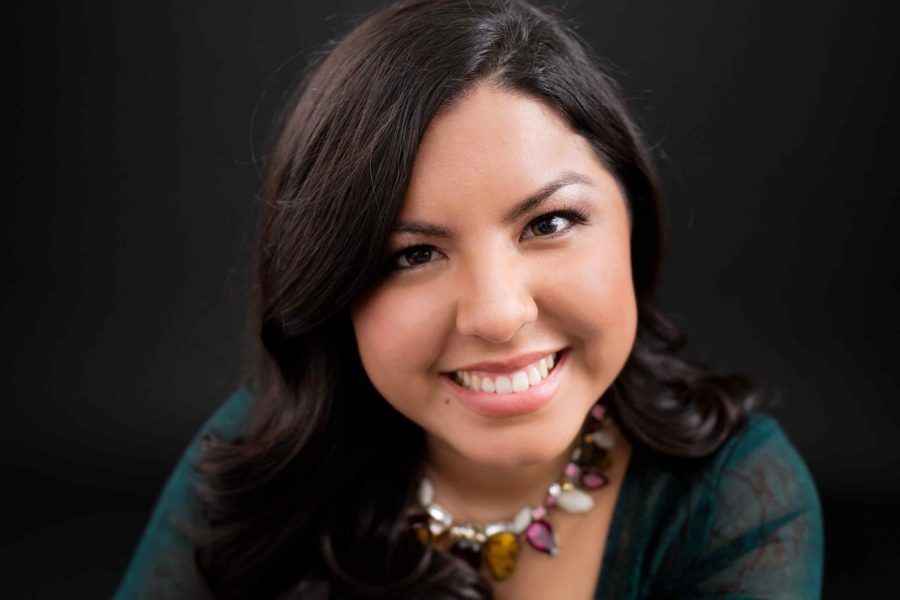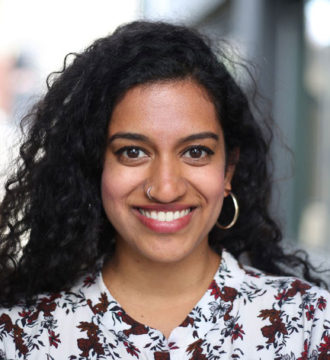When we think about the world’s most powerful companies, the chief executive officers who run them usually come to mind. But, when CEOs are traveling, striking deals, and attending meeting after meeting, they have to delegate important tasks to ensure that everything runs smoothly in their absence. Who do they entrust with this kind of responsibility? That would be the executive assistant.

Photo courtesy of Vanessa Farino
Double threat: Vanessa Farino founded The Assistants Hub and The Women’s Hub.
Managing an enormous number of duties and amount of influence on a daily basis as a senior executive assistant to a CEO, Vanessa Farino created the Boston Executive Assistants organization in 2016 to connect with assistants going through the same experience. Due to BEA’s success, Farino rebranded the group to The Assistants Hub in September 2018, with Boston as the founding chapter. Earlier this year, Farino also launched The Women’s Hub, a networking resource for women navigating their careers, health, home and lifestyle.
The Assistants Hub Boston chapter has a network of over 1,000 assistants (95 percent are women) representing over 500 companies. Farino’s organization is a way for executive assistants to realize their own influence and power, professionally advocate for themselves in their careers and create a community of like-minded individuals.
Currently a senior executive assistant to a CEO at an AI technology company in Boston, Farino is passionate about paying it forward. She regularly holds free mentoring boot camps for women under 25 years old. “We communicate through calls, and I push them out of their comfortable zone and help them figure out how to achieve those goals,” says Farino. One of her mentees had been yearning to move to New York City, and, under Farino’s mentorship and guidance, she finally made it happen this year.
In 2017, Farino was named as one of El Mundo Boston’s Latino 30 Under 30 and this year was named an honoree for 40 Under 40 by the Boston Business Journal.
Exhale caught up with Farino to discuss her professional journey as an executive assistant, get her top advice for other assistants, and find out what to expect from her networking organizations.

Exhale: How were The Assistants Hub and The Women’s Hub formed?
Vanessa Farino:I was working as the executive assistant to the CEO of a start-up located in the Federal Reserve Bank of Boston, and he was involved in an organization that supported presidents and CEOs called the YPO. I asked why this was so important to him, and he told me that being a CEO is hard and can be isolating, and it was a way for him to connect with other CEOs. I thought, ‘That’s excellent—but wait, where’s my support group?’
I was the only assistant at my company and joined as employee number 39. We soon tripled. I had read an article about how the executive assistant role is the new power role. Think about it: If you want to talk to a president of a company, celebrity or politician, you don’t contact them directly, you want their assistant. We’re huge influencers, and we handle budgets of thousands of dollars. We book flights, plan events, hire catering services, book private cars, schedule board meetings — you name it, we’re involved or planning it. I thought, ‘There must be other executive assistants out there who also are going through the same struggles.’
The Women’s Hub came about because other women, who weren’t necessarily assistants, came to me seeking to join the group. They had heard about what we do and how we were making an impact in people’s lives. The Women’s Hub isn’t just a professional platform, it includes everything related to women, and we offer events and resources for multiple aspects of their lives.

What was your personal journey like in becoming an executive assistant?
I’ve been an executive assistant for 10 years now. My first professional experience was as the financial assistant to the director of operations at Northwestern Mutual, The Boston Group. I was the youngest person in the company by 10 years!
I never completed college, but I have taken dozens of classes. For most of my career, I’ve been working 24/7, and I put what I learned from my classes into practice at work. I studied four years of accounting, consumer economics, business organization, and management in high school. I started my entrepreneurial career at 15 years old when I co-founded a clothing boutique with my mother in Everett. I managed the boutique after school, went to fashion shows in NYC to scout merchandise, and was responsible for the marketing, inventory, event planning and management of employees.
When I applied for the position at Northwestern Mutual, my manager took a chance on me despite [me] not having a college degree. But, I had the skills. They gave me an accounting test for the position, and I aced it. Years later, I applied for an office manager and assistant to the president position at a start-up located in the Federal Reserve Bank of Boston, but they referred me to the executive assistant to the CEO and founder position instead. I couldn’t believe it. It was the second best opportunity of my entire career.

What lessons have you learned throughout your professional career?
At Northwestern Mutual, my manager was my mentor, even though I didn’t know it then. You have to find mentors in your life. They are kind of like your board of directors; we should think of ourselves as being the CEO of our own lives and career.
Being an executive assistant is about relationship building, negotiating, emotional intelligence, managing others, dealing with difficult people, learning about the latest technology, knowing time zones, travel and visa requirements, safety protocol and more. You also need to understand personal aspects of your executive: When they work best, how to make sure those clients or board meetings are booked at those preferred times, and understand when they are stressed to clear their entire day so they can tackle important business goals. You pretty much become a master on how to make an executive as successful as possible. It’s also like being in business school every single day for the rest of your career.
However, it can be a thankless job. Some people think assistants only book meetings and travel, when in reality, that’s only 10 percent of our role. They might think, ‘How hard can being an assistant be?’ But then you think about the days we call out sick or go on vacation and you come back to chaos, it’s kind of funny to see.

What is it like being a Latina working in traditionally white male-dominated spaces?
It was eye opening. You have to push 10 times harder to be heard and to master how to advocate for yourself. Overall, I’m grateful to live in Boston, where I feel supported as a Latina, whereas other cities in the nation perhaps don’t have the same opportunities.
Being trilingual was an advantage for me in my career and particularly for my executives. I also speak Spanish and Portuguese. A former executive a few years ago asked me to assist in closing a half-million-dollar deal on his behalf in a Spanish-speaking country while he was in another country closing a different deal.
When I was thinking of launching The Assistants Hub, a lot of times people would say to me, “You’re just an assistant, why does it matter?” Most people don’t know it’s a real career where you can make over six figures. We’re skilled at what we do. We sit behind the desks of powerful and influential people, but we also keep the companies running.
Being traditional hasn’t worked for some people, and that’s OK. Traditionally, we’re told, especially by older generations, don’t be that person that stands out, just blend in. They say that because they lived in a different time and lived different struggles. Today, we have the opportunity to stand out.
I’m grateful that when I founded The Assistants Hub and The Women’s Hub, my executives at the time were very supportive. These are the things that I’m passionate about outside of work, and I have not, and cannot, work in a setting where I don’t feel supported by the companies or executives.

What future plans and goals do you have for The Assistants Hub?
We have so many future plans. We just celebrated our two-year anniversary, and in 2019, we will launch The Assistants Hub chapters in New York City, San Francisco, Austin and Chicago.
Further in the future, I want to launch international chapters, starting with South America. I’m from Bolivia, and I’ve been researching and networking with assistants there to see how we can make this possible for the countries of South America who also go through the same struggles as we do here. My goal is to launch international chapters by 2020.



 7 min read
7 min read


